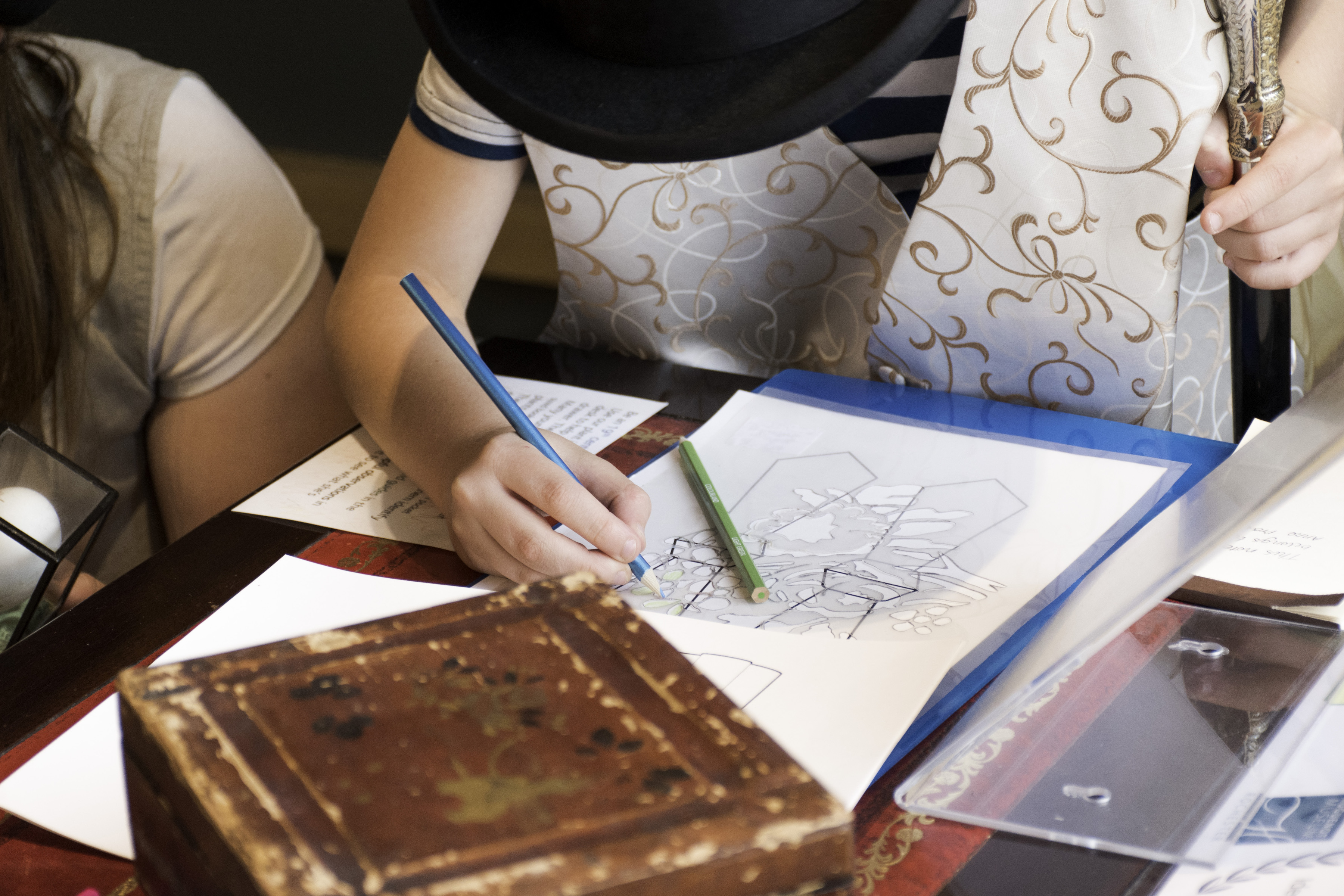We recognise how vital engagement with local heritage is within communities, therefore we have developed strong connections with historical locations in Medway. We have been proud to have worked on a number of projects as part of the Old High Street INTRA High Street Heritage Action Zone funded by Historic England, which includes the St Bartholomew’s Hospital project you can see from our home page. We specialise in community engagement and reminiscence work and run sessions in schools, day centres and libraries to celebrate the incredible heritage we have in Medway. We often partner on projects with Future Chatham, who share an equal passion for heritage, communities, place and development.
The travelling Apothecary

by Natasha Boardman-Steer
Over January to March 2022, Creatabot has been going into schools to tell tales of the incredible history of medicine within the INTRA area of Medway. This area is particularly unique as the first hospital there, St Bartholomew’s, opened in 1078 and the modern day hospital did not close until 2016. Additionally, the Sir John Hawkins hospital was built on the original hospital grounds and cared for ill and injured navy personnel during the 1500s. In the 1800s, Henry Gardiner Adams ran a pharmacy on Nags Head Lane and had a love for poetry and nature. He also edited a book called ‘Gods Image in Ebony’ which was a very affordable and easy to read book about how slavery should be abolished. All this was happening just a stone throw away from Fort Pitt Medical School, which was a one of a kind training facility even before Florence Nightingale signed it off as such. Keep an eye on Creatabot for future projects around this subject, which combines beautifully the subjects of heritage, health and creativity. If you would like to be involved in future projects or have information to contribute, please get in touch via heritage@creatabot.co.uk
The project is a community engagement commission for the High Street Heritage Action Zone Programme, which is funded by Historic England and supported by Medway Council.
Featherstones Memories project

Natasha Boardman-Steer from Creatabot and George Atzev from Future Chatham have collaborated to create the Featherstones Memories Project during February to March 2022. The project shines a light on Featherstones Ltd, specifically at 351 High Street, Rochester in celebration of the building restorations beginning. 351, historically known as Brewers mansion due to it being built by the Hulkes brewers family, has been at risk of deterioration since Featherstones left the building in the late 1990s. Thanks to a grant as part of the High Street Heritage Action Zone funding from Historic England, the building frontage is being restored, including the front gates which are being replicated. The Featherstones Memories project invites people to email their memories and photos to heritage@creatabot.co.uk – memories and photos will be stored within Medway Archives for future reference.
This project is a community engagement commission for the High Street Heritage Action Zone Programme, which is funded by Historic England and supported by Medway Council.




Anne Pratt’s Desk – The Huguenot Museum
This beautiful installation, commissioned in July 2019, sends families on an exploration of a botanical artists writing and sketching desk. Anne Pratt was born in Strood in 1806 and went on to be a world recognised botanical author and illustrator. Her mother Sarah Bundock was a descendent of the Huguenot’s.
Photos by Laura Fisher
Fort Amherst SUITCASE OUTREACH SESSIONS

During 2018-2019 Natasha Steer ran travelling suitcase sessions in care homes, day centres, libraries and schools using objects and uniforms from Fort Amherst. The 3 suitcase sessions tell the tales of Women’s life at the Fort in WW2, Archaeology of the site (including stories of the Anglo-Saxon burial site!) and life at the fort as a Napoleonic soldier. The project was funded by Historic England, supported by Medway Council.







